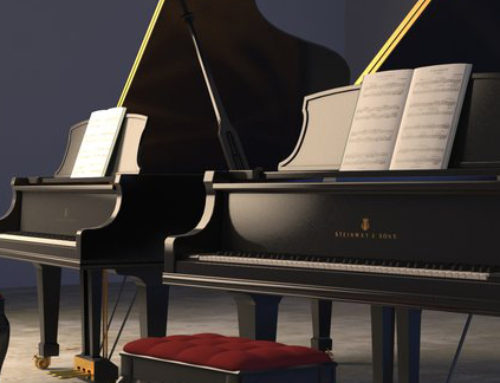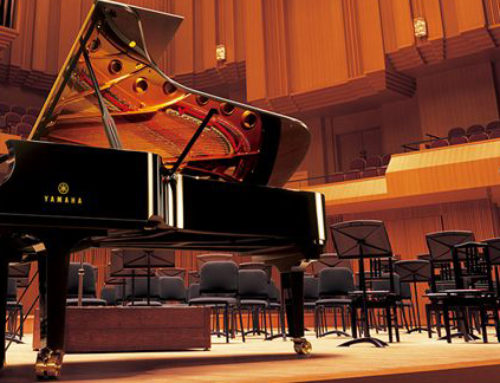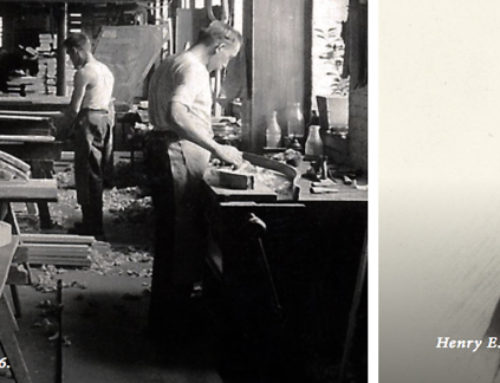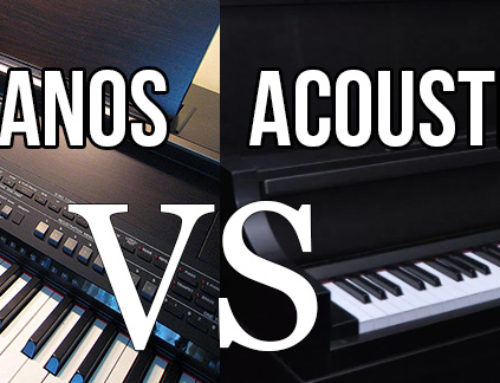Many people buy a piano according to the player’s abilities. However, they should be placing their focus on the piano’s abilities. More important than a player’s abilities is whether the piano will enable a student to develop a good technique and inspire him to play better and more often.
A piano should always be considered to be an investment. Like most investments, it can increase or decrease in value, depending on many factors. Understandably, this leaves many potential piano buyers with far too many questions and uncertainties. Which piano will be a good investment? Which is the best for our child, our home, and our purposes? How can I know I won’t regret my decision?
The guidelines below will help you find the best piano for you and your budget.
- Consider size. Often, the larger the piano, the larger the price tag. However, note that larger pianos are not always the best choice. For the best sound, the piano size should relate to the size of the room where it will be placed in your home.
- Appearance. Pianos can range from simple to ornate. While style and décor might be an important factor to you, these are cosmetic and should not take precedence over functionality, pitch, and tone. Note, though, that the cabinet deserves some consideration because it will affect the instrument’s tone.
- Listen: Find the piano with the best quality tone and vibration. Close your eyes and compare the quality of the sound of various instruments before selecting one.
- Inspect: Make sure the keys are uniformly sized, smooth and crack and chip free. When depressed, you should feel some resistance as the key sinks into the bed. Inspect the pedals to ensure they are functioning properly and provide sufficient resistance and depth. Look at the music rack—is it in easy arm’s reach to enable the quick turning of pages?
- Purchase or Investment: Like motor vehicles, some pianos decrease in value and others increase in value. If you’re looking for an investment that will increase in value, you should consider name brands that have a reputation and last a lifetime.
- Maintenance: Once you own a piano, it must receive routine maintenance and proper care if it is too last. Consider the placement of the soundboard and other factors. While it is recommended that piano tuning should occur every 6 to 12 months, less expensive pianos should not be tuned as frequently because of the potential of damaging the tuning pins.
- Budget: Of course, price will play a role in the piano you can afford. Rather than focusing on the cheapest piano you can find, it is better to find the best piano you can afford.
New piano buyers might find the process of shopping for a piano daunting. It can be … if you don’t know what you’re looking for. Robert’s Piano Service provides consultation and accompaniment to piano stores to help new piano buyers select the right piano for their needs and budget. Tone, touch, material quality, craftsmanship, and budget are important things to consider before buying, and a professional evaluation of new and pre-owned pianos prior to purchase is particularly important.
Contact Robert’s Piano Service when you’re in the market for a new piano and receive the confidence that the piano you purchase will enhance your abilities and home for decades to come.
Click here to learn more about the services Robert’s Piano Services offer.
Call 408.375.3612 today for a free consultation to determine your piano’s needs and create a personalized tuning and servicing schedule based on your piano’s age, condition, usage, and environmental factors.
专业钢琴调音师
钢琴调音器
钢琴维修
钢琴检查
















